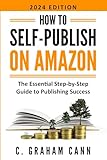Entering and Winning at the Writing Contest Game
Pamela White offers advice and resources to writers who would like to sort out fact from fiction in the world of writing contests.

Visit any writing message board and you'll read discussion threads on contests and competitions for writers. The messages run the gamut of those who have been scammed to those who rave about contests. So where does the truth lie? For as many contests for writers there are out there, there are as many truths.
Before you run away from the opportunities offered by many legitimate writing contests, read the following eleven tips on choosing, winning and benefitting from writing contests.
1. Visit the websites listed below under resources. Many offer comments on writing contests which can help you decide which ones are for you, and which ones are to avoid. Do an internet search on the publication, business or person running the contest. While not answering all your questions, this type of search can help you cross off questionable contests.
2. If a contest is free to enter, you have nothing to lose, but still read the fine print. There are contests that claim rights to any winning stories, or even all submissions. For contests with an entry fee, decide if the prize money justifies the fee. For example, would you pay $15 entry fee for a poetry contest where the winner received $35 as the prize? Would you pay a fee if the prize was publication, or a book?
3. Still unsure about a publication or business that is running an writing contest? E-mail the publisher or owner and ask for references. Visit the contest's website and track down former winners. Again, this is not a guarantee of anything, but if a former winner says he lost all rights to his story and was never paid, or on the other hand, if the winner raves about the cash prizes and personal note from the literary agent/contest judge, you have a better idea of how you are likely to be treated in each case.
4. Read the rules carefully to make sure that a prize will be awarded no matter how many entries are received. If there is a minimum amount of entries (say the editor just wants to bring in entry fees equal to the cash awarded), make sure that the contest's rules state the fees will be refunded if the competition cannot be completed.
5. Want to increase your odds of winning? Find a relatively new publication or contest. Each year a contest is held builds on the previous year's publicity. The second annual contest of a fiction magazine will likely draw less entries than one that's been publicized for ten years.
6. Another way to hedge your bets is to follow the contest's rules. Know the word limit, way to submit, how to pay the entry fee and when winners will be announced. Do not think your story will be so special that the judges will overlook your sloppy formatting, lack of fee or 4000 extra words.
7. Read the list of judges. This could be as important as (and more exciting than) reading the contest rules. Will a magazine editor be judging your work? Maybe you'll catch the eye of a book editor, literary agent, novelist or publisher. If the judge list is great, and you don't win a prize, you can still hope to hear from one of the judges asking you to submit to his magazine, or from a publisher asking if you have a novel in the works. For example, the kinds of judges you might wish to have reading your work can be found at Futures Mysterious Anthology Magazine which lists its judges online: http://www.fmam.biz/contests.html#judges .
8. Organize your work to be ready to enter contests. New contests pop up daily online. If you have your stories, essays, poems and book proposals organized, you can quickly pull one from your files of articles. Some contests accept previously published pieces, so know where your reprints are too.
9. Keep close tabs on what contests are coming up. Writer's Digest Writers Markets has a section listing writing contests. The Writer magazine has a markets section in each issue that includes contests. Futures Mysterious Anthology Magazine, which offers large cash prizes, and ByLine Magazine, which pays extra (beyond the nice cash prizes) to publish winning stories, list their upcoming contests in each issue. Write down the URL's listed below so you can plan a weekly foray online to find new competitions that meet your writing and personality.
10. Write fiction and want to add a win to your publishing credits? Know the periodicals and reviews that have writing contests. Read what they publish so you'll know what to submit to the contests. Glimmer Train has an annual new writers contest for those who've not yet been published in the short story genre. They are so organized for this and their other contests that they accept entries and the fee online, and send e-mail reminders to subscribers and writers when new contest deadlines are looming.
11. Take advantage of business tax deductions. Entry fees can be listed on your Schedule C (assuming you are a sole proprietorship) as a business expense, so keep track of entry fees you've paid. Any cash prizes, though, are not considered business income, but must be listed under "Other Income" on your 1040.
Resources to Help You Find and Win Contests:
Information on Contests- http://www.windpub.com/literary.scams/http://www.writersweekly.com/phpBB2 - has a Whispers and Warnings Board
- http://www.sfwa.org/Beware/contests.html
- http://www.absolutewrite.com - click on Water Cooler at top of page to go to both a Bewares message board and a message board of paying opportunities including contests.
Contest listings:
- http://www.fmam.biz
- http://www.glimmertrain.com
- http://www.food-writing.com
- http://www.writing-word.com/contests/index.shtml
- http://www.bulwer-lytton.com/
- http://www.writersdigest.com/contests
- http://www.poewar.com
- http://www.directory.ansme.com/arts/5566127.html
- http://www.ByLinemag.com/contests.asp
Pamela White is the editor and publisher of "Food Writing," an online newsletter which is running its first contest right now. She writes on writing, food, parenting, nutrition and life in general from her haunted home in northern New York amid the bustle of three children, her husband, five cats and one dog. Visit her at http://www.food- writing.com .
Read These Next
Marketing a Hard Sell Book
he book industry knows which titles sell quickly and which titles take longer to sell. Special niche books may be a "hard sell," according to publishing experts. Publishers appreciate the author’s efforts. Have you written a hard-sell book? Your personal marketing efforts may boost sales.
Book Pricing Strategies
Book publishers need to consider the market, their costs, and the perceived value of the book before arriving at a retail price for any title.
What is a Self-Publisher?
A brief look at self-publishing -- what it is, what it isn’t, and why anyone would be crazy enough to try it.







 Self-Publishing For Dummies (For Dummies: Learning Made Easy)
Self-Publishing For Dummies (For Dummies: Learning Made Easy) How to Successfully Self-Publish a Book on Amazon & Audible: How to Build a Profitable Self-Publishing Business
How to Successfully Self-Publish a Book on Amazon & Audible: How to Build a Profitable Self-Publishing Business Self Publishing To Amazon KDP In 2023 - A Beginners Guide To Selling E-books, Audiobooks & Paperbacks On Amazon, Audible & Beyond
Self Publishing To Amazon KDP In 2023 - A Beginners Guide To Selling E-books, Audiobooks & Paperbacks On Amazon, Audible & Beyond Write. Publish. Repeat. (The No-Luck-Required Guide to Self-Publishing Success)
Write. Publish. Repeat. (The No-Luck-Required Guide to Self-Publishing Success) Self-Publishing: The Secret Guide To Becoming A Best Seller (Self Publishing Disruption Book 2)
Self-Publishing: The Secret Guide To Becoming A Best Seller (Self Publishing Disruption Book 2) How to Self-Publish Your Book: A Complete Guide to Writing, Editing, Marketing & Selling Your Own Book
How to Self-Publish Your Book: A Complete Guide to Writing, Editing, Marketing & Selling Your Own Book How to Self-Publish on Amazon: The Essential Step-by-Step Guide to Publishing Success
How to Self-Publish on Amazon: The Essential Step-by-Step Guide to Publishing Success Self Publishing To Amazon KDP In 2024 - A Beginners Guide To Selling E-books, Audiobooks & Paperbacks On Amazon, Audible & Beyond
Self Publishing To Amazon KDP In 2024 - A Beginners Guide To Selling E-books, Audiobooks & Paperbacks On Amazon, Audible & Beyond Successful Self-Publishing: How to self-publish and market your book in ebook and print (Creative Business Books for Writers and Authors)
Successful Self-Publishing: How to self-publish and market your book in ebook and print (Creative Business Books for Writers and Authors) Self-Publisher's Legal Handbook: Updated Guide to Protecting Your Rights and Wallet
Self-Publisher's Legal Handbook: Updated Guide to Protecting Your Rights and Wallet